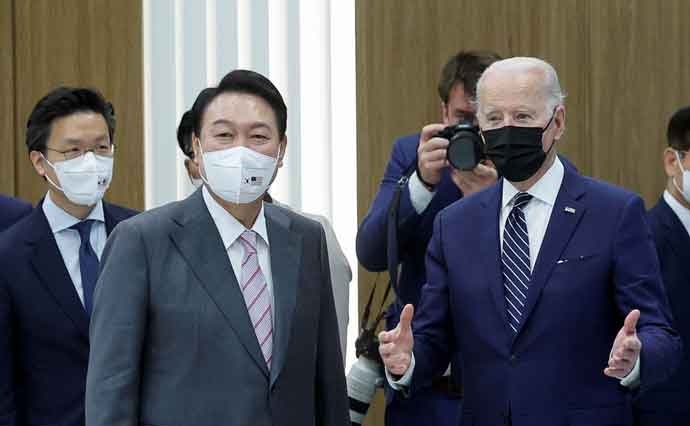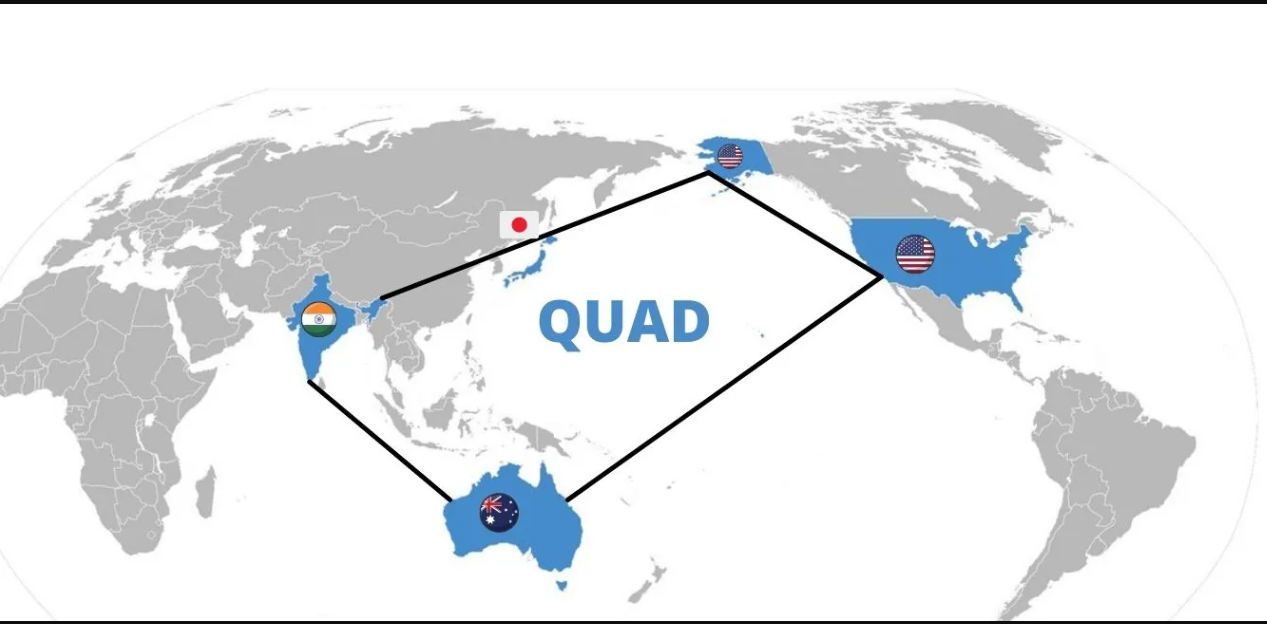
Nie Wenjuan, Deputy Director of Institute of International Relations, China Foreign Affairs University
May 31, 2022
At the gathering in Washington, China was the elephant in the room. While it’s too soon to say which side has the upper hand in Southeast Asia, the summit offered a glimpse of how the competition will unfold.
Zhang Yun, Professor, School of International Relations, Nanjing University
May 31, 2022
Thirteen countries in the Indo-Pacific region have joined the initiative, which indicates interest. But there are problems with the framework as presented that raise questions about its ability to succeed and endure.
Shen Dingli, Professor, Institute of International Studies, Fudan University
May 31, 2022
There was nothing new revealed in the U.S. president’s visit, other than launching Indo-Pacific Economic Framework. Roping in Japan and South Korea and declaring that the U.S. would “intervene” in a Taiwan conflict, all amounted to old news.
David Shambaugh, Gaston Sigur Professor and Director of China Policy Program at George Washington University, Distinguished Visiting Fellow at Hoover Institution of Stanford University
May 31, 2022
As President Biden attends his first in-person meetings in Asia, who he’s visiting and their respective agendas can inform our observations on what the U.S. strategy will be in dealing with China’s neighbors.
Liu Chang, Assistant Research Fellow, Department for American Studies, CIIS
May 30, 2022
Lacking concrete detail, the framework is burdened by great uncertainty. Moreover, the United States seems to be sending a decoupling signal to China — a questionable strategy. If the U.S. continues along this line, it will be hard to win confidence and cooperation from countries in the Indo-Pacific region.
Tao Wenzhao, Honorary Member of the Chinese Academy of Social Sciences; Fellow, CASS Institute of American Studies
May 30, 2022
The IPEF as yet has no real content, so people are understandably mystified. America wants to drive a wedge between regional countries and China. But this won’t work, as China is already embedded. Supply chains will not be altered on a whim.

Zhao Minghao, Professor, Institute of International Studies at Fudan University, and China Forum Expert
May 24, 2022
Washington is looking to shore up its Indo-Pacific strategy by further roping in South Korea and Japan. Its strategy is alive and well despite the Russia-Ukraine conflict, and China’s peripheral diplomacy will continue to face thorny challenges.

Zainab Zaheer, Development Consultant
May 20, 2022
Besides tackling COVID-19 and climate change, a unifying force within the Quadrilateral Security Dialogue is undoubtedly the member countries’ response to China. As the May Quad summit is underway, analysts must assess both how the Quad will react to China as well as how China will respond to the Quad alliance.
Sajjad Ashraf, Former Adjunct Professor, National University of Singapore
Mar 15, 2022
America finally issued a broad statement on its Indo-Pacific strategy, predictably addressing concerns about China’s influence and spelling out its intention to play into its allies' favor. Meanwhile, ASEAN must respond to the latest development to retain their own autonomy and stability in what many are sure to see as rising tensions.
Chen Jimin, Guest Researcher, Center for Peace and Development Studies, China Association for International Friendly Contact
Mar 14, 2022
The Biden administration recognizes the importance of sustained engagement in the region, but it can’t ignore Washington’s other interests around the world. Thus, the prospects for America’s Indo-Pacific Strategy are uncertain.
Back to Top

- China-US Focus builds trust and understanding between the U.S. and China through open dialogue among thought leaders.
- Our Offerings
- Topics
- Videos
- Podcasts
- Columnists
- Research Reports
- Focus Digest
- Stay Connected
-
Thanks for signing up!
- Get the latest stories from China-US Focus weekly.